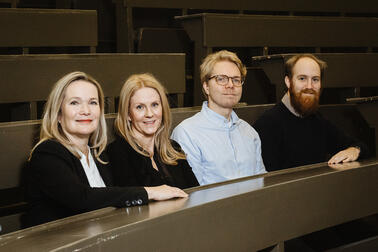
The Child-Friendly Municipality model is a tool that helps municipalities make the right decisions with regard to children’s well-being in the municipality’s administration and in everyday services for children. The model identifies which areas of children’s rights the city needs to develop and defines what the city must do to ensure that children’s rights are realised as well as possible. Every child is valuable, and children’s rights apply to all children. The model helps municipalities to ensure that the rights of children – especially the most vulnerable – are respected.
In the Child-Friendly Municipality model, municipalities spend just over two years conducting development work before the designation is granted. Helsinki's objectives in its Child-Friendly Municipality work are to increase staff awareness of children's rights, introduce child impact assessment, make feedback collection child-friendly, prevent bullying and ensure that children and young people feel safe in urban spaces. During the spring, Helsinki’s work on the Child-Friendly Municipality aims to achieve these goals.
Staff knowledge of children's rights is strengthened through training. Nearly 2,500 City of Helsinki employees have already participated in the continuing education on children’s rights.
A decision will be made on introducing the child impact assessment in the spring, and the city aims to introduce the child impact assessment in the decision and budget preparation, which will also take place in the spring. The city will create guidelines and arrange training to support the systematic implementation of the assessment.
The collection of feedback on the City of Helsinki’s services will be developed to be more child-friendly, regular and systematic. A common planning tool has been produced for the city to help consult children and young people in a child-friendly way and collect feedback on this consultation.
The training of early childhood education staff on the phenomenon of bullying has been strengthened and policies are being streamlined. Secondary education staff will receive further training on the phenomenon of bullying and will be briefed on the operational model for addressing bullying and harassment. The competence of club and leisure activity providers in preventing and addressing bullying will also be increased.
Children and young people’s experience of safety in urban spaces will be strengthened by developing interaction. Pilot projects will be used to formulate and describe a suitable interaction model for this purpose.
The Child-Friendly Municipality model is part of Helsinki’s work to promote health and welfare.


